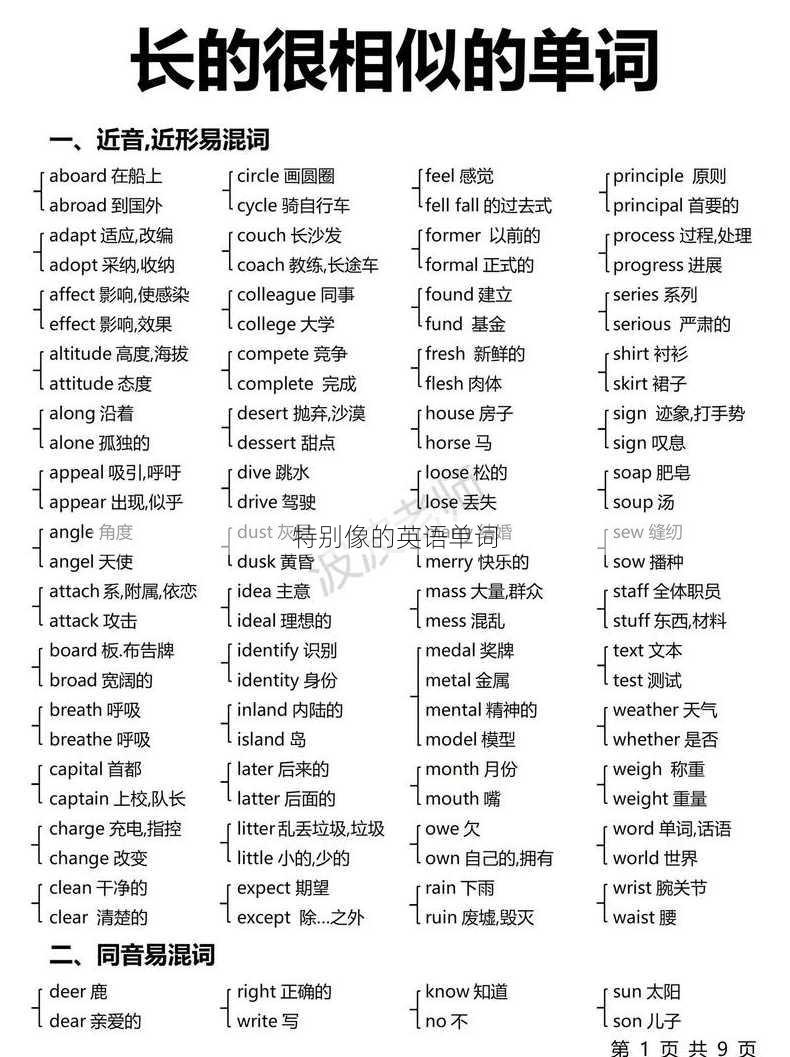一、英语中特别像的单词
在英语学习中,我们经常会遇到一些发音或拼写特别相似的单词,这些单词在英语中被称为“homophones”或“homonyms”。下面列举一些常见的例子:
- To, Too, Two
发音:三者都发作/toʊ/。

用法:
To:表示“到”,如“I am going to school”。
Too:表示“也”或“太...了”,如“I want some chocolate too”或“It is too hot”。
Two:数字“二”,如“I have two apples”。
- There, Their, They're
发音:三者都发作/ðeər/。
用法:
There:表示“那里”,如“I live there”。
Their:表示“他们的”,如“That is their house”。
They're:是“they are”的缩写,表示“他们”,如“They're going to the park”。
- Your, You're
发音:两者都发作/juər/。
用法:
Your:表示“你的”,如“That is your book”。
You're:是“You are”的缩写,表示“你”,如“You're going to be late”。
二、
英语中特别像的单词很多,掌握它们对于提高英语水平非常重要。通过不断的学习和实践,我们可以更好地运用这些单词,避免在写作或口语中出错。
三、相关问题及回答
- 问题:What are homophones?
回答:Homophones are words that sound the same but have different meanings and spellings.
- 问题:How do you differentiate between there, their, and they're?
回答:To differentiate between there, their, and they're, remember that 'there' refers to a place, 'their' refers to possession, and 'they're' is a contraction for 'they are'.
- 问题:What is the difference between to and too?
回答:'To' is used to indicate direction or purpose, while 'too' is used to mean 'also' or 'excessively'.
- 问题:How can you remember the difference between your and you're?
回答:To remember the difference between your and you're, think of 'your' as 'yours' and 'you're' as 'you are'.
- 问题:Can you give another example of homophones?
回答:Another example of homophones is 'sea' and 'see'. Both words are pronounced the same but have different meanings and spellings.
